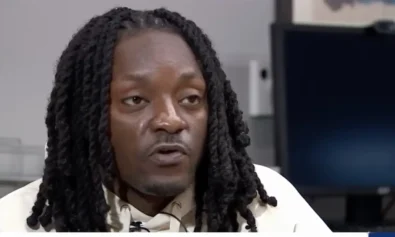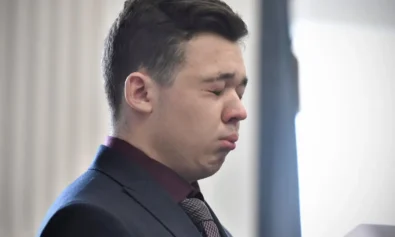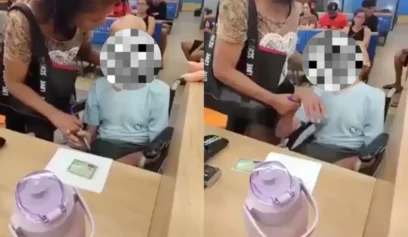SILVER SPRING, Md. (AP) — A Maryland prosecutor said Thursday he isn’t asking a grand jury to consider criminal charges in the death of a black teenager who struggled with police officers, saying he can’t prosecute “tragic acts.”
Caroline County State’s Attorney Joseph Riley issued a five-page statement based on an autopsy report from the chief medical examiner’s office about the death of Anton Black, 19. The report said Black’s struggle with police and a civilian likely contributed to his death.

This undated photo provided by LaToya Holley shows Anton Black. (LaToya Holley via AP)
The “report does say that it is likely that the stress and the struggle with law enforcement in conjunction with his mental health status and his congenital heart defects contributed to his death,” Riley said. “However, again, the ME’s report makes perfectly clear that ‘there is no evidence that Anton Black was choked or that he was’ physically struck by officers, or had force applied to his neck.”
Riley told The Baltimore Sun that the investigation remains open.
“If I am provided new information,” he said, “that could potentially change my position.”
Riley’s decision disappointed relatives of Black, who died Sept. 15 after an 11-minute-long struggle with three officers and a civilian outside his family’s home on Maryland’s Eastern Shore. Family attorneys vowed to ask the Justice Department’s civil rights division to investigate.
“The autopsy raises serious questions about why such a high degree of force was used on an unarmed teenager on his own property who posed no threat to law enforcement or the public,” said Timothy Maloney, an attorney for Black’s family. “These questions will have to be addressed elsewhere.”
Attorneys for Black’s family said in a previous statement Thursday that the autopsy documents the teen’s extensive injuries “in shocking detail.” The report lists more than three dozen scrapes and bruises on his face, neck, back, shoulder, right arm and right wrist. He also had a wound on his left buttock from a Taser dart.
“There was no good reason for these officers to inflict this degree of force upon Anton Black, or even to arrest him. He was no threat,” the statement said.
The encounter began when Greensboro Police officer Thomas Webster IV responded to a report of the teenager dragging a 12-year-old boy down a street. Lawyers for Black’s family say he merely was playing with a longtime friend and wasn’t harming the child.
Officers chased Black onto his family’s property, where he locked himself inside a car. An officer used a baton to break the driver’s side window and then shocked Black with a Taser through the broken window before the teen got out and began struggling with the officers and civilian, according to the autopsy report.
Black appeared to be “unresponsive,” but was still breathing and had a pulse after officers handcuffed him and restrained his legs, the report says. After his mother pointed out that her son was “turning dark,” officers removed the handcuffs and began performing CPR on him, about 11 minutes after the struggle began, the report adds. Black was pronounced dead at a hospital.
The medical examiner’s report says Black’s medical record shows he recently had been involuntarily hospitalized and diagnosed with bipolar disorder. The report describes his mental illness as a “significant contributing condition.”
Maloney and Rene Swafford, another attorney representing the family, said they are conducting an independent review of forensic and medical evidence. “In any event, Anton Black did not die because of any mental condition,” their statement said.
Dr. Mary Pascucci, a Nashville, Tennessee, forensic pathologist not involved in investigating Black’s death, said the autopsy report doesn’t explain how Black’s bipolar disorder could have contributed to his death.
“I don’t think mental disorder plays a part in this at all,” she said.
Family attorneys said their own experts will review the medical examiner’s finding that Black had congenital heart problems making him more susceptible to cardiac arrest “under those conditions,” their statement says.
“But any congenital heart issues that may have existed would not excuse police (officers’) responsibility for a death which occurs as a result of wrongful arrest or excessive force,” it adds.
On Wednesday, officials in Caroline County showed body camera video of the encounter to reporters but didn’t publicly release copies, citing the police investigation. The Baltimore Sun reported the footage shows Black’s mother screaming her son’s name as she sees officers pinning him down.
Family attorneys urged Riley to convene a grand jury for the investigation. They argue the autopsy report mischaracterizes his death as accidental.
Pascucci said the evidence cited in the autopsy report suggests the medical examiner’s office could have ruled that the manner of Black’s death was “undetermined” instead of accidental.
“Things like that can be argued,” she said. “We still don’t know how much of a part the (heart) anomaly played into this.”


